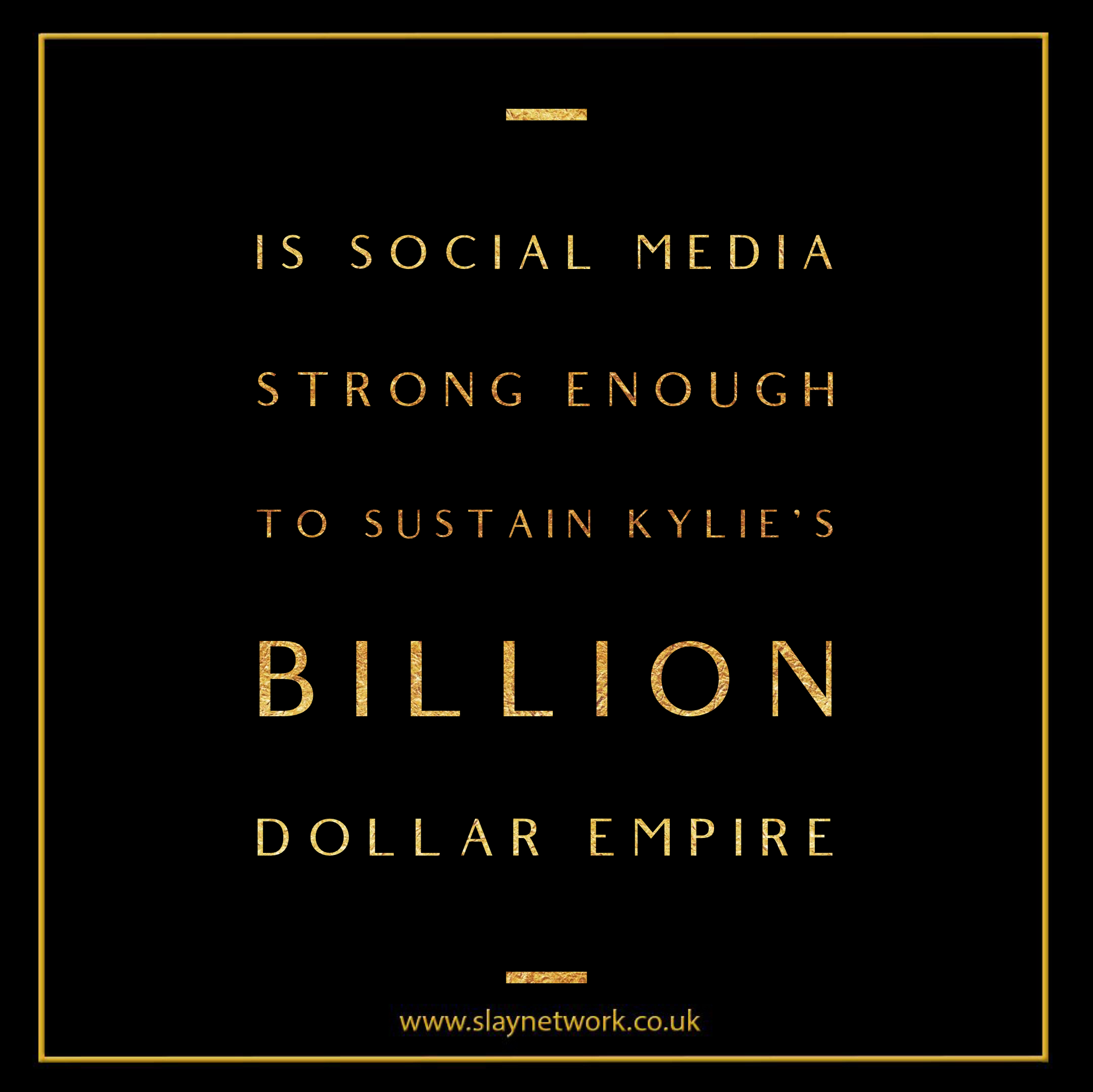She secretly patented ‘Kylie Skin’ and ‘Kylie Skin By Kylie Jenner’ in October 2018.
And with the release of her new skincare line dropping on May 22, Kylie Jenner is giving fans a behind-the-scenes look into her new office.
The 21-year-old self-made billionaire debuted the new office space for employees while touring the building.
‘Kylie Skin section at my office is done,’ she shared on her Instagram Stories.
The video showcased a white office desk display with just phones and a trashcan.
The key to Kylie Cosmetics’ recent success? Jenner’s expertly executed social media strategy: With hundreds of millions of online followers at her fingertips, Jenner can advertise and sell her products all without ever expending a dime of her own.
But for Li Jin, an investment partner at Silicon Valley venture firm Andreessen Horowitz, Jenner’s social media smarts might not be enough to leverage her brand into an enduring business.
On Twitter, Jin suggested that there’s a cautionary tale at the heart of Jenner’s unprecedented success, and that the 20-year-old’s cosmetic empire might be fated for obscurity unless she expands its focus.
According to Jin, Kylie Cosmetics’ primary flaw is that it’s too focused on Kylie Jenner.
“The major job that her products help consumers do now is to feel like they’re accessing a piece of Kylie,” Jin writes.
If Jenner hopes to maintain her business in the long-run, Jin suggests that it shouldn’t rely as much on Jenner’s celebrity persona: “To become an enduring, standalone business, it’s necessary for all influencer brands to go beyond being tied to a single person, and create a ‘purpose brand.'”
Jin points to Harvard Business professor Clayton Christensen’s example of a “purpose brand” as being a company that “become[s] so tightly associated with the job they perform that they become inextricably linked to it.”
For instance, enduring brands like Coca-Cola, Starbucks, and Kleenex have all iterated their mission so well that consumers will pay a premium for their products over their more negligible counterparts. These brands aren’t linked to an individual, they’re connected to something much bigger: An idea, an emotion, or a mission.
“Some of the strongest purpose brands even become verbs, inextricably linked with a specific job,” Jin continued. “It’s tough for brands to stick around without being tied to a specific job, and consumers’ jobs don’t often change.”
Could Kylie Jenner’s company suffer the same fate as Martha Stewart’s Omnimedia?
If Jenner doesn’t shift Kylie Cosmetics’ focus beyond her own celebrity influencer appeal, Jin suggests that it could suffer the same fate as Martha Stewart’s media company, Living Omnimedia, which dwindled drastically in value following its initial public offering in 1997.
“In the ’90s, Stewart leveraged her prominence from books and TV to create a business with publishing, broadcasting, and merchandising segments, all centered around her persona as a homemaking goddess,” writes Jin. ” Its valuation hit $1.8B after IPO, but 16 years later, [it] was de-listed and worth a small fraction of that.”
While some might believe that social media provides powerful, enduring fuel for any celebrity or influencer-backed startup, Jin says that it’s just the opposite: In the digital age, celebrity-focused brands dissolve faster than ever before.
“In today’s digital world, with compressed hype cycles and without the benefit of multi-year retail or broadcasting contracts, celeb-underpinned brands can fade even faster,” she writes. “Social media has made it easier than ever to attract an audience and build widespread influence…the barriers [to start] a new brand are lower than ever.”
Is social media really all you need to run an $800 million business if you’re an influential celebrity?
Forbes’ story suggests that Jenner is almost entirely reliant on her social media following to turn a profit: “Basically, all Jenner does to make all that money is leverage her social media following,” Forbes reports. “Almost hourly, she takes to Instagram and Snapchat, pouting for selfies with captions about which Kylie Cosmetics shades she’s wearing, takes videos of forthcoming products and announces new launches.”
Is social media really all you need to run a billion dollar business if you’re an influential celebrity?
Jin doesn’t think so. After all, she writes, celebrity-backed brands like Blake Lively’s Preserve and Mary Kate and Ashley Olsens’ StyleMint have all petered out within the last few years. Successful celebrity-backed companies like Jessica Alba’s Honest Company and Gwyneth Paltrow’s Goop shifted the focus away from their starlet founders early on, says Jin.
“Their famous names imparted a signal of credibility, but to scale and endure, they aligned themselves with broader movements and communities,” she writes.
To create a long-lasting company, Jin recommends that Kylie Jenner transfer the focus of Kylie Cosmetics to a distinct, mission-oriented purpose: “She can align her brand with a broader shift in women’s attitudes: Today, that could be makeup as self-expression and a celebration of individuality and diversity.”
Sources Business Insider, Daily Mail





